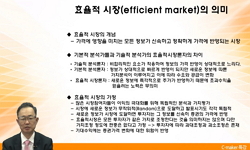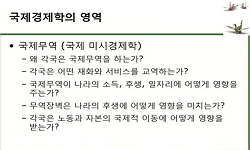본 연구는 개별 펀드 수익률에 따라 구성된 포트폴리오의 성과를 종목 선택 및 시장 예측 능력으로 나누어 포트폴리오 성과를 결정하는 요인을 분석하였다. 또한 성과 지속성을 분석하여 성...
http://chineseinput.net/에서 pinyin(병음)방식으로 중국어를 변환할 수 있습니다.
변환된 중국어를 복사하여 사용하시면 됩니다.
- 中文 을 입력하시려면 zhongwen을 입력하시고 space를누르시면됩니다.
- 北京 을 입력하시려면 beijing을 입력하시고 space를 누르시면 됩니다.
https://www.riss.kr/link?id=A103372212
- 저자
- 발행기관
- 학술지명
- 권호사항
-
발행연도
2012
-
작성언어
Korean
- 주제어
-
KDC
32
-
등재정보
KCI등재,SCOPUS
-
자료형태
학술저널
- 발행기관 URL
-
수록면
723-753(31쪽)
-
KCI 피인용횟수
7
- 제공처
-
0
상세조회 -
0
다운로드
부가정보
국문 초록 (Abstract)
본 연구는 개별 펀드 수익률에 따라 구성된 포트폴리오의 성과를 종목 선택 및 시장 예측 능력으로 나누어 포트폴리오 성과를 결정하는 요인을 분석하였다. 또한 성과 지속성을 분석하여 성과가 펀드 매니저의 능력에 의한 것인지 알아본다. 유의적인 종목 선택 및 시장 예측 능력이 존재하고, 지속된다면 주식 시장이 완전히 효율적이지 않다는 증거가 된다. 하지만 일정 기간 펀드 매니저의 능력에 의해 높은 성과가 발생하더라도 성과가 지속되지 않는다면 펀드 매니저의 능력에 의해 성과가 좌우되는 것이 아니라는 것을 알 수 있다. 4요인 모형과 HM(Henriksson and Merton) 및 STR(Smooth Transition Regressive) 모형을 이용하여 성과 및 성과 지속성을 분석한 결과는 다음과 같다: 첫째, 성과에 따른 포트폴리오 재구성은 Henriksson(1984), Jagannathan and Korajczyk(1986), Bollen and Busse(2005)가 개별 펀드 추정에서 발견한 종목 선택 능력과 시장 예측 능력 간의 음(-)의 상관관계를 해결하는 하나의 방법이 될 수 있음을 확인하였다. 둘째, 3개월, 6개월, 12개월 재구성 기간의 포트폴리오 성과를 분석한 결과, 시장 예측 능력이 포트폴리오 성과를 결정하는 중요한 요인임을 알 수 있었다. 셋째, 유의적인 시장 예측 능력이 존재하는 최상위 성과 포트폴리오의 시장 의존 베타는 평활하게 변하였다. 이는 시장 상황에 따라 점차 베타를 증가시키는 전략이 있다는 것이다. 이 때, 최상위 성과 포트폴리오의 재구성 기간이 증가할수록 평활 효과는 증가하였다. 넷째, 포트폴리오의 성과 지속성은 존재하지 않았다. 3개월, 6개월, 12개월 성과 지속성이 없다는 것은 포트폴리오 재구성 기간에 나타난 종목 선택 및 시장 예측 능력이 펀드 매니저의 능력에 의한 것이 아님을 말해 주는 것으로 효율적 시장을 지지하는 증거가 된다.
다국어 초록 (Multilingual Abstract)
This study examines the determinants of equity funds` performance and its persistence in the presence of market-dependent systematic risk: stock selection or market timing ability? We fail to find any evidence of stock selection or market timing abili...
This study examines the determinants of equity funds` performance and its persistence in the presence of market-dependent systematic risk: stock selection or market timing ability? We fail to find any evidence of stock selection or market timing ability that is against market efficiency. We use the traditional HM (Henriksson and Merton) model and the smooth transition regression (STR) model to study equity funds` performance and its persistence. We find the following results: First, the approach of portfolio formation is an alternative to resolve the negative correlation problem between stock selection and market timing measures in the HM model. Second, market timing ability is a major determinant of equity fund performance when we examine portfolio performance on the basis of 3, 6, 9, and 12 month rebalancing frequencies. Third, when we artificially make the highest performing portfolio, its systematic risk of beta moves smoothly according to market risk premium. That is, if market risk premium is rising (declining), the beta of the highest performing portfolio is moving upward (downward) smoothly, The longer the portfolio rebalancing period, the stronger the effect of smoothing beta. Fourth, the persistence of portfolio performance is not found at all in any rebalancing period. This study concludes the lack of stock selection and market timing abilities in the Korean equity funds` performance.
참고문헌 (Reference)
1 김봉준, "확률할인요소 및 가상펀드를 이용한 주식형 펀드의 성과 평가" 한국재무관리학회 27 (27): 183-229, 2010
2 박영규, "채권형 펀드의 성과평가 및 성과지속성 연구" 한국재무학회 17 (17): 143-174, 2004
3 하연정, "주식형 펀드의 해지와 부의 이전: 공모와 사모 펀드의 비교" 한국증권학회 41 (41): 341-372, 2012
4 최혁, "적립식 투자전략이 투자성과를 개선하는가?" 한국증권학회 39 (39): 573-609, 2010
5 김상배, "국내 주식형 펀드의 타이밍 능력은 존재하는가?" 한국재무관리학회 26 (26): 93-112, 2009
6 박영규, "국내 주식형 펀드 시장에 대한 성과평가 연구" 29 (29): 117-143, 2001
7 Jensen, M. C., "The Performance of Mutual Funds in the Period 1945~1964" 23 (23): 389-416, 1968
8 Luukkonen, R, "Testing Linearity Against Smooth Transition Autoregressive Models" 75 (75): 491-499, 1988
9 Teräsvirta, T., "Specification, Estimation, and Evaluation of Smooth Transition Autoregressive Models" 89 (89): 208-218, 1994
10 van Dijk, D., "Smooth Transition Autoregressive Models-A Survey of Recent Developments" 21 (21): 1-47, 2002
1 김봉준, "확률할인요소 및 가상펀드를 이용한 주식형 펀드의 성과 평가" 한국재무관리학회 27 (27): 183-229, 2010
2 박영규, "채권형 펀드의 성과평가 및 성과지속성 연구" 한국재무학회 17 (17): 143-174, 2004
3 하연정, "주식형 펀드의 해지와 부의 이전: 공모와 사모 펀드의 비교" 한국증권학회 41 (41): 341-372, 2012
4 최혁, "적립식 투자전략이 투자성과를 개선하는가?" 한국증권학회 39 (39): 573-609, 2010
5 김상배, "국내 주식형 펀드의 타이밍 능력은 존재하는가?" 한국재무관리학회 26 (26): 93-112, 2009
6 박영규, "국내 주식형 펀드 시장에 대한 성과평가 연구" 29 (29): 117-143, 2001
7 Jensen, M. C., "The Performance of Mutual Funds in the Period 1945~1964" 23 (23): 389-416, 1968
8 Luukkonen, R, "Testing Linearity Against Smooth Transition Autoregressive Models" 75 (75): 491-499, 1988
9 Teräsvirta, T., "Specification, Estimation, and Evaluation of Smooth Transition Autoregressive Models" 89 (89): 208-218, 1994
10 van Dijk, D., "Smooth Transition Autoregressive Models-A Survey of Recent Developments" 21 (21): 1-47, 2002
11 Bollen, N. P. B, "Short-Term Persistence in Mutual Fund Performance" 18 (18): 569-597, 2005
12 강장구, "Sharpe의 방법론을 이용한 한국 주식형펀드의 운용스타일 및 성과분석" 한국증권학회 39 (39): 307-339, 2010
13 Karceski, J, "Returns-chasing Behavior, Mutual funds, and Beta’s Death" 37 (37): 559-594, 2002
14 Jegadeesh, N, "Returns to Buying Winners and Selling Losers: Implications for Stock Market Efficiency" 48 (48): 65-91, 1993
15 Malkiel, B. G, "Returns from Investing in Equity Mutual Funds 1971 to 1991" 50 (50): 549-572, 1995
16 Busse, J. A, "Performance and Persistence in Institutional Investment Management" 65 (65): 765-790, 2010
17 Brown, S. J., "Performance Persistence" 50 (50): 679-698, 1995
18 Carhart, M. M, "On Persistence in Mutual Fund Performance" 52 (52): 57-82, 1997
19 Henriksson, R. D, "On Market Timing and Investment Performance. II. Statistical Procedures for Evaluating Forecasting Skills" 54 (54): 513-533, 1981
20 김세완, "Nonlinear Dynamic Relations Between Equity Return and Equity Fund Flow:Korean Market Empirical Evidence" 한국증권학회 39 (39): 139-170, 2010
21 Grinblatt, M., "Momentum Investment Strategies, Portfolio Performance, and Herding: A Study of Mutual Fund Behavior" 85 (85): 1088-1105, 1995
22 Henriksson, R. D, "Market Timing and Mutual Fund Performance: An Empirical Investigation" 57 (57): 73-96, 1984
23 Fama, E. F., "Luck versus Skill in the Cross Section of Mutual Fund Returns" 65 (65): 1915-1947, 2010
24 Hendricks, D, "Hot Hands in Mutual Fund: Short-Run Persistence of Relative Performance, 1974~1988" 48 (48): 93-130, 1993
25 Barras, L, "False Discoveries in Mutual Fund Performance: Measuring Luck in Estimated Alphas" 65 (65): 179-216, 2010
26 Fama, E. F., "Common Risk Factors in the Returns on the Stocks and Bonds" 33 (33): 3-56, 1993
27 Kosowski, R, "Can Mutual Fund‘Stars’ Really Pick Stocks? New Evidence from a Bootstrap Analysis" 61 (61): 2551-2595, 2006
28 Treynor, J., "Can Mutual Fund Outguess the Market" 44 : 131-136, 1966
29 Jagannathan, R., "Assessing the Market-timing Performance of Managed Portfolio" 59 (59): 217-235, 1986
30 Enders, W, "Applied Econometric Time Series, 3rd Edition" Wiley 2010
31 고광수, "A Survey of Mutual Fund Studies: Implications for Korean Markets" 한국재무학회 24 (24): 275-365, 2011
동일학술지(권/호) 다른 논문
-
- 한국증권학회
- 우민철(Min Cheol Woo)
- 2012
- KCI등재,SCOPUS
-
Downside Risk and Underpricing of IPOs
- 한국증권학회
- 이종용(Jong Ryong Lee)
- 2012
- KCI등재,SCOPUS
-
- 한국증권학회
- 박영규(Young Kyu Park)
- 2012
- KCI등재,SCOPUS
-
- 한국증권학회
- 김성민(Sung Min Kim)
- 2012
- KCI등재,SCOPUS
분석정보
인용정보 인용지수 설명보기
학술지 이력
| 연월일 | 이력구분 | 이력상세 | 등재구분 |
|---|---|---|---|
| 2026 | 평가예정 | 재인증평가 신청대상 (재인증) | |
| 2020-01-01 | 평가 | 등재학술지 유지 (재인증) |  |
| 2017-01-01 | 평가 | 등재학술지 유지 (계속평가) |  |
| 2013-01-01 | 평가 | 등재학술지 유지 (등재유지) |  |
| 2010-06-28 | 학술지명변경 | 외국어명 : Korean Journal of Financial Studies -> Korean Journal of Financial Studies |  |
| 2010-01-01 | 평가 | 등재학술지 유지 (등재유지) |  |
| 2009-01-01 | 평가 | 학술지 분리 (기타) |  |
학술지 인용정보
| 기준연도 | WOS-KCI 통합IF(2년) | KCIF(2년) | KCIF(3년) |
|---|---|---|---|
| 2016 | 1.06 | 1.06 | 0.98 |
| KCIF(4년) | KCIF(5년) | 중심성지수(3년) | 즉시성지수 |
| 1.06 | 1.22 | 2.132 | 0.33 |





 DBpia
DBpia




